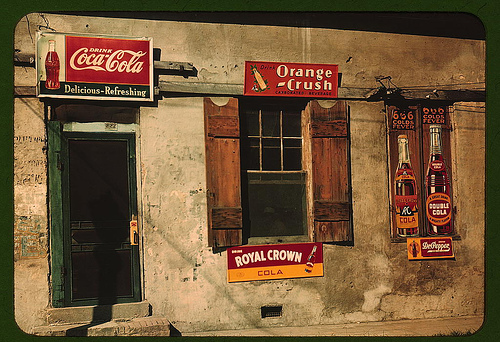Define The Termsis a series of educational articles I am writing, geared towards helping those interested in enterprise social media (also known as corporate social media) have an easier time in cyberspace. The only reason someone can’t apply information for any topic or areas is because the basic terms are not understood. I go out of my way to explain these terms in easy to understand language. While the definitions of these words won’t explain how to use social media, not understanding them might actually make implementation of social media harder to do.
Two of those terms are “The Internet” and “Web,” extremely common terms we all throw around, but what do they really mean?
Nets and Webs: Is There a Difference?
Usually when I bring up The Internet and the Web in my weekly classes, a very common response is, “don’t they mean the same thing?”
Yes and no. Originally The Internet and the Web had completely different meanings, but more recently they have been used with the same meaning in mind.
The Internet
The Internet was around long before we, the general public, had access to it. These days most of us probably don’t think twice about going online to look something up. But just a few years ago The Internet was just a network of library and governmental computers connected together via phone lines. A simplified description to be sure, but I’m not trying to be technically verbose.
Well, that covers The Internet. It’s as simple as the “hardware” part of the package. Just like your desktop computer has hardware components separate from the word processing software, The Internet is just that. Networked hardware. It is considered a proper noun, i.e., capitalized just like a person’s name would be.
The World Wide Web
“Web” is a shortened version of “World Wide Web.” Originally it meant all the linked documents that “rested” on The Internet. Like the software on the desktop computer. Wow, these explanations are getting shorter and shorter.
There you have it. Hardware and software. Not sure if I can make it simpler than that!
Common usage has somehow reduced the two words into one meaning, leaning towards “web” more than”hardware.” After all, most of us aren’t experts at hardware, so I suppose it’s not much of a surprise people tend to focus on the document concept.
“Look it up on the internet,” is not as accurate as, “Look it up on the web.” But since it’s in such common use “incorrectly,” it doesn’t really matter because just about everyone uses the two terms interchangeably. Besides, we all generally understand what is meant.

A similar example might be the word cola. Most of the time we mean the “Coca Cola” brand, but cola could be used for any brand’s similarly flavored soda pop.
World Wide Web = WWW
Just in case the dots didn’t connect already, “web” comes from World Wide Web, which is also seen everywhere as WWW. In simple terms, behind the scenes is a language computers use to locate “resources” on the web. Like any language, it had to be uniform in structure so that all computers could talk to each other and achieve results with consistency.
There are three important words in what I just said, leading up to the next, and final, concept of this article:
- Uniform,
- Resource
- Locate
Resource; meaning a website or other “document” on the Web.
Locate; meaning to find. Let’s change it slightly to “Locator” for this article.
To find documents on the Web, we need a Uniform Resource Locator. Another way to say that is, a universally recognizable location for a website so we can find it when we want to see it. We’ve all been using Uniform Resource Locators for awhile. Every time you go to a website by typing in “www.website.com,” or any variation thereof, that’s a URL.
Now you can dazzle others with your increased understanding.
Understanding these words brings you one step closer to utilizing corporate social media and other online resources to your advantage. There are so many opportunities available to promote and create online lead generation, both free and otherwise, it’s worth learning the basics and getting involved in whatever way you can.
